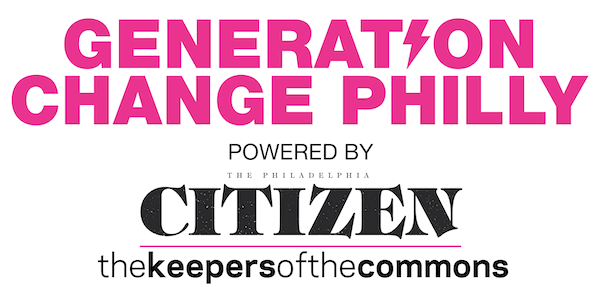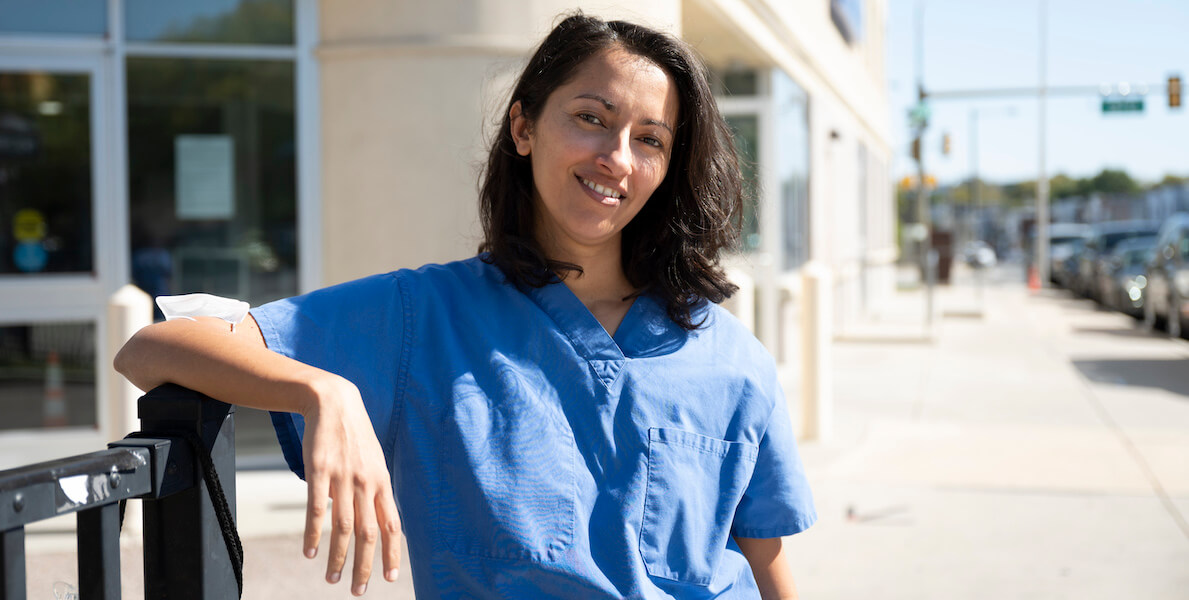Before creating the public health program that saves Medicaid an estimated $2,500 per patient annually, Dr. Shreya Kangovi and her team asked 1,500 West Philadelphia residents what they needed to stay healthy. They expected responses focused on doctors or hospitals. They were wrong.
“[The residents] wanted to talk about the real-life issues that made it hard to stay healthy: the loneliness, the fear of eviction, the cost of medicine. They didn’t want more pills or needles or clinics. They wanted support from someone they could relate to, who had walked in their shoes and lived their experience,” says Kangovi. “These are the people we often talk about in health care, but no one listens to.”
So Kangovi assembled a team of listeners, developing the Individualized Management for Patient-Centered Targets (IMPaCT ) program with Penn Medicine Center for Community Health Workers (CHW). Now about a decade old, IMPaCT sends community health workers — lay people who come from marginalized communities — into high-risk neighborhoods, bridging the gap between doctors and patients to help them address the social issues that are barriers to good health.
Since its launch, CHW has worked with 16,000 patients. It currently supports 2,500 Philadelphians. It’s also touched the lives of thousands nationwide. The Veterans Health Administration, multiple state Medicaid programs, and 18 states have now used the IMPaCT model to create their own community health worker programs.
For her work to bridge the health equity gap in Philadelphia and beyond, Kangovi is part of Generation Change Philly, The Citizen’s partnership with Keepers of the Commons to highlight and bring together future leaders in the city.
The numbers are impressive, but Kangovi doesn’t mention them when she talks about IMPaCT. Her focus is on the community healthcare workers who are out on the front lines. “I’m still learning, but they are the people I want to be someday,” she says. “They’ve taught me how to be kinder, how to be a better listener and how to move through the world in a way that has more grace.”
“We come from the same neighborhoods and most likely have had the same struggles,” says Tamala Carter, “We listen to people who’ve felt they’ve not been heard.”
Community health workers don’t provide medical care or give medical advice, nor do they pay any outstanding bills. “Community” is the key to their success.
“We come from the same neighborhoods and most likely have had the same struggles,” says Tamala Carter, the project’s community research coordinator, who helped conduct the interviews that shaped the program. “We listen to people who’ve felt they’ve not been heard. We built up trust, relationships. They can share their trauma because they know they’re not being judged.”
“No one,” she adds, “wants to be in bad health … But if you have a chronic condition and need to choose between paying the rent, buying food, and getting medication, you’ll choose food and rent before medication.”
Between unfairness and kindness
Born in India, Kangovi settled in the U.S. with her family when she was three years old. While studying at Harvard Medical School, she returned briefly to India, where community health workers are part of the care system. She watched them “do magic” by listening and responding to patients’ needs.
“Community health workers have been around for 300 years but people don’t know of them,” Kangovi says. “After what I saw in India, I wondered, Why haven’t they hit prime time [in the U.S.] yet?”
From Penn Medicine, Kangovi and her team began doing “porch tours,” the 1,500 interviews with West Philadelphia residents about what they wanted out of the healthcare system.
“If you have a chronic condition and need to choose between paying the rent, buying food, and getting medication, you’ll choose food and rent before medication,” Kangovi.
“Unfairness has always irritated me,” Kangovi says. “On the other side, I love the kindness of strangers. [The program] is somewhere between those two things.”
The program has been tested in three randomized trials and the conclusions are consistently “remarkable,” according to Roy Rosin, Penn Medicine’s chief innovation officer: It improves chronic disease control, mental health and quality of care. Research published in JAMA Internal Medicine in 2018 showed that IMPaCT reduced hospitalizations by 65 percent and doubled patient satisfaction with their primary care physicians. A study published in Health Affairs in 2020 found that the program’s annual return on investment was $2.47 for every dollar invested annually by Medicaid.
“The return on investment is incredible for any health program, but especially for one that addresses this sort of complex, intractable problems,” Rosin says.
Earlier this year, Modern Healthcare included Kangovi on its annual list of “Top 25 Innovators.”
Kangovi, Rosin says, “is a thought leader. When you think of legacy and making a difference, Shreya is really making a difference.”
The proof is in the numbers — and the stories
Less than 5 percent of the U.S. population make up 50 percent of the nation’s healthcare spending, according to a 2011 study published in JAMA Network Open. One cost driver is the unnecessary use of emergency rooms, which cost the system $32 billion in 2018, according to an analysis by insurer UnitedHealth Group.
People with low incomes are more likely to go to an emergency room than to a primary doctor’s office. There are multiple reasons for this, as Kangovi and others found in a 2013 study. People without access to transportation know they can use an ambulance to get medical care. Those without insurance rely on hospital charity care. Many believe the care they get in a hospital is superior to what they’d receive during a primary care visit.
As a result, IMPaCT finds many of its patients in emergency departments. Then it works hard to keep them out of them.
A study published in Health Affairs in 2020 found that the program’s annual return on investment was $2.47 for every dollar invested annually by Medicaid.
Carter works with people who are having trouble with their SNAP applications, who can’t get doctors’ appointments, who are facing eviction. If she sees a “Help Wanted” sign in a window, she’ll make sure the patient looking for work gets the information. She’ll guide patients through the tricky paperwork and connect them with organizations dedicated to addressing their problems.
“You can’t worry about your health if you don’t have a house to live in,” she says.
One of the patients Carter met in Penn’s emergency room was a 30-something man with a disability and high blood pressure. He went to the ER every time his pressure spiked. He’d visited twice before meeting Carter.
The man enrolled in IMPaCT. After talking to him, Carter learned that he ate mostly junk foods from the nearby corner store, that he’d lost his medical insurance because he didn’t fill out and return the right paperwork, and that he had no way to monitor his blood pressure at home.
“We underestimate the power of kindness in this society,” says Carter.
She helped him fill out the insurance documents, connected him with a nutritionist, and a primary care doctor, and provided a blood pressure cuff. He doesn’t need the ER now.
“The magic of CHW is the kindness we all share,” Carter says. “We underestimate the power of kindness in this society.”
Kangovi’s team publishes a monthly newsletter featuring the work of a single community healthcare worker. One CHW who was working with an immigrant from Nepal connected the women with other Nepalese women, and they planted a garden together. Another made a hospital care package that included a bottle of water — and the community health worker’s own hair weave.
“The patient had admired it, so she gave it to the client,” Kangovi marvels.
Having the program’s effectiveness proven by three randomized trials and quantified with numbers and percentages inspires Kangovi. She finds even more inspiration when she learns of specific patient outcomes.
“The success is in those stories,” she says. “Even as a scientist, it’s validating to hear them.”

![]() MORE ON INNOVATIVE APPROACHES TO HEALTH CARE FROM THE CITIZEN
MORE ON INNOVATIVE APPROACHES TO HEALTH CARE FROM THE CITIZEN



